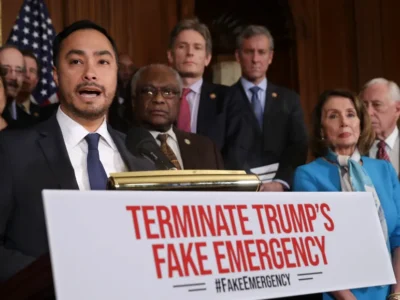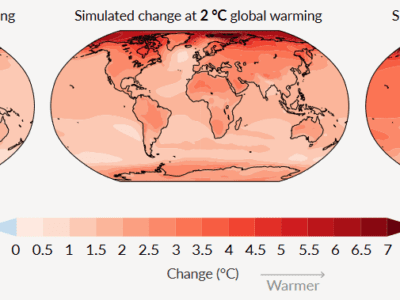Justice Gorsuch versus the Administrative State
Does the Gundy decision spell doom for modern government?
Gundy v. United States was a case involving a fairly obscure statute regulating sex offenders, but some have seen it as a harbinger of the destruction of the modern administrative state. In a 4-1-3 split, the Court turned away a constitutional challenge based on a claim that Congress had delegated too much authority to the executive branch. But there were ominous signs that at least four Justices are willing to change the ground rules in order to slash the authority of administrative agencies. What we don’t know yet is whether they can get a fifth vote, and how far they are willing to go.
The issue before the Court was whether the statute was an unconstitutional delegation of legislative power to the Attorney General. For almost ninety years, the test has been whether a statute contains an “intelligible principle” limiting executive discretion. But only four Justices endorsed that test in Gundy. Three others, led by Justice Gorsuch, called for jettisoning the test. Justice Alito seemed sympathetic, though he did not join them, and Justice Kavanaugh did not participate. Thus, the future of the delegation doctrine seems to rest with Kavanaugh. What would be the results if he and Alito adopted Gorsuch’s view?
One difficulty in addressing that question is that the meaning of the statute was disputed. The four liberals viewed it as requiring the Attorney General to require registration by sex offenders who had already been convicted when the statute was passed if that was “feasible.” They considered that to be a sufficient limitation on the Attorney General’s discretion. The Gorsuch dissent viewed the statute as placing no restrictions at all on the Attorney General’s discretion in that regard. If Congress actually had provided no standard, that would be an unconstitutional delegation under any test. But Gorsuch did supply an alternative test and some hints how he would apply it in future cases. The question then is how much this alternative test would lay waste to modern regulation, which rests heavily on delegations of authority to agencies such as EPA.
Gorsuch identified three circumstances in which Congress can delegate authority to agencies. First, when Congress has “made the policy decisions,” it may leave it to an agency to “fill in the details.” But the statute must provide a standard sufficiently precise so that courts, Congress, and the public “can know whether Congress’s guidance has been followed.” Second, once Congress has created a rule, it can “make the application of the rule depend on Executive Branch fact-finding. Third, Congress can broadly delegate authority in areas where the President has his own inherent authority, such as foreign affairs.
Gorsuch’s standard would apply equally to environmental regulation. Application of Gorsuch’s standards requires distinguishing “details” from policies, determining whether a delegation is sufficiently clear and precise, and distinguishing “facts” from “policies.” All of these are judgment calls. Gorsuch gives a hint to how he would apply these standards in ruling on the statute if, as the liberals argued, it provided a standard of “feasibility.” Gorsuch suggested feasibility might refer to technological feasibility, administrative feasibility, or even political feasibility. “Such an ‘evasive standard would threaten the separation of powers if it allowed the agency to make the ‘important policy choices’ that belong to Congress while frustrating ‘meaningful judicial review.’”
The problem is that we don’t know what policy choices do “belong to Congress” or just how “meaningful” judicial review must be.
Consider the National Ambient Air Quality Standards (NAAQS), which Congress must set with an ample margin of safety to ensure that the public’s health is not endangered. On the one hand, this is a very consequential decision, not easily described as a detail. This statute involves a policy decision about how ample the margin of safety should be. It also involves a great deal of highly specialized expertise. Moreover, distinguishing between risk to public health and risks that are too uncertain or too minor clearly involves judgment. On the other hand, there are ample procedures for public participation in this decision, and the D.C. Circuit has found it possible to engage in meaningful judicial review. The statute limits EPA to considering a single factor, health risks. (The so-called “secondary standards” are based on threats to public welfare, which might be too broad to satisfy Justice Alito.). And it does make what is probably the policy judgment that risks to public health must be avoided without regard to cost. As a practical matter, it is hard to imagine that Congress could digest all the technical evidence and make its own decisions every few years about what level of each important pollutant to allow.
Gorsuch’s test is vague enough that we can’t be sure how it would be applied. But it is hard for me to believe that the Court would invalidate this provision and in the process knock out the three-quarters of the Clean Air Act tied to the NAAQS. Anything is possible, of course, but that would be a radical move, particularly given that Justice Scalia wrote the key opinion upholding the statute a few years ago. Other portions of the pollution laws seem even less likely to be threatened. Requirements that sources use the best available technology nearly always give a list of factors to be considered and some general indication of their weight. Moreover, if applying such standards isn’t filling in the details, it’s hard to see what would be. Surely, we could not expect Congress to make such determinations on an on-going basis for myriad industries.
I haven’t said anything about Gorsuch’s arguments for why a stricter standard for delegations is needed. Gorsuch’s arguments are based on questionable normative and empirical judgments, all attributed to the Framers of the Constitution with no specific evidence. And Gorsuch is driven to argue that Congress is the superior branch because it is less responsive to majority will and more deliberative than administrative agencies. It’s far from clear that either assertion is true, or that we should applaud the ability of special interests and other factions to block legislation. (Both grounds would suggest that all the policy decisions should be made by federal courts, which are even less democratic and and more deliberative, rather than the other two branches of government. But never mind that.) Moreover, if Gorsuch favors the delegation doctrine as a protection for liberty, as he argues, it is inexplicable that he is most willing to dispense with constitutional restraints in the national security areas where the executive branch is most dangerous to liberty. In any event, he seems to have forgotten that the Constitution’s primary aim was to create an effective national government; if the framers had meant to hobble effective action, they could simply have left the Articles of Confederation in effect. Gorsuch argues that Congress could make all the relevant policy decisions itself, but this is hard to take seriously given that there would probably have to be hundreds of those decisions every year on a huge range of topics.
Gorsuch’s opinion is vague and poorly supported. But even if his test is adopted, it will only be a body blow to the regulatory state if there are five Justices willing to wield it indiscriminately. If that is so, no constitutional doctrine can save us. But if the Gorsuch test is applied reasonably, it would probably matter in only a few limited cases even if it does eventually getting five votes.
It’s not at all clear that Gorsuch has five votes for a bludgeon-like use of his approach. Roberts joined his opinion, but just yesterday went along with a compromise opinion by Justice Kagan preserving deference to agencies in the Kisor case. Justice Alito seems sympathetic to Gorsuch’s desire to reconsider delegation doctrine, but might or might not agree with his specific test. And Kavanaugh, in his lower court decisions, gave no hint that he desired to smash the administrative state.
Gorusch’s opinion shows an unsettling degree of unrest regarding the current state of American government. But that’s a long way from a successful campaign to set back the clock a century or more.
Reader Comments
2 Replies to “Justice Gorsuch versus the Administrative State”
Comments are closed.







It is paradoxical that the deliberative process in Congress has devolved to voting on multi-hundred page bills that members have not had the chance to read. Perhaps Congress would have to constrain itself, requiring a chance for extended deliberation before legislation could pass. Not just reduced regulation; reduced legislation too!
Can procedures in the budget process provide Congress with a mechanism to review regulatory policy in a way that would (ex post) satisfy the delegation test?
Interestingly, Kavanaugh’s dissent in Kisor v. Wilkie (joined by Alito) acknowledges that “broad and open-ended terms like ‘reasonable,’ ‘appropriate,’ ‘feasible,’ or ‘practicable,” are precisely the kinds of terms that “afford agencies broad policy discretion….” Will be interesting to see if Kavanaugh would agree with Gorsuch in a future case.